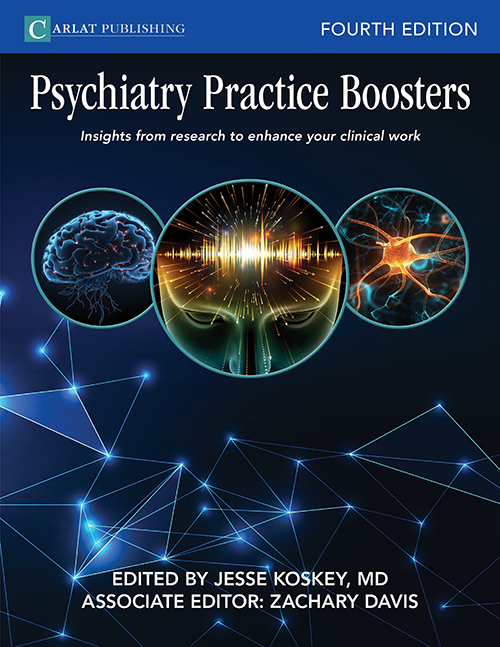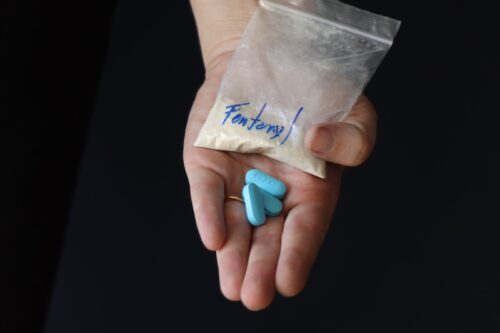Home » Jornay PM Nighttime Stimulant for Next-Morning Effect
Jornay PM Nighttime Stimulant for Next-Morning Effect
November 1, 2018
From The Carlat Child Psychiatry Report
Talia Puzantian, PharmD, BCPP
Dr. Puzantian has disclosed that she has no relevant financial or other interests in any commercial companies pertaining to this educational activity.
Prescribing bedtime stimulants sounds like a recipe for a bad night’s sleep. But the FDA recently approved Jornay PM, which is an extended release (ER) formulation of methylphenidate that is, in fact, dosed at night.
Approved for kids age 6 and older, Jornay PM has an extremely delayed onset of effect of 10 hours. This means kids can take it at around 8 pm and it won’t actually kick in until about 6 am, so symptom control appears early in the morning. Jornay PM is cleverly formulated. The methylphenidate is delivered using a technology called “Delexis,” a 2-layer drug delivery system that allows no more than 5% of the drug to be absorbed within the first 10 hours. After this initial lag period, controlled release of the drug occurs between 10–24 hours after administration, with peak levels around 14 hours post-dose.
Approval was based on 2 trials. The first was a 6-week study of 43 kids already taking methylphenidate who were switched to Jornay PM (Wigal S et al, 29th Annual US Psychiatric and Mental Health Congress poster 2016). Over 1 week, the Jornay dose was optimized (mean dose 65.6 mg), and then kids were randomized to either continue Jornay or switch to placebo. After 6 weeks, the kids in the Jornay group showed significantly more improvement compared to placebo in both teacher and parent ratings. The second study was a 3-week, randomized, double-blind study in 161 kids with ADHD that also showed significant improvement with Jornay over placebo (Pliszka SR et al, J Child Adolesc Psychopharmacol 2017;27(6):474–482).
Side effects were similar to other methylphenidate formulations, although insomnia was reported in 41% of patients in the open-label phase of the first trial. Moving forward, it will be important to see whether sleep and appetite are problematic vs other medications or placebo. Jornay PM will be available in 20 mg, 40 mg, 60 mg, 80 mg, and 100 mg ER capsules with a dosing range of 20–100 mg QPM. Pricing information is not yet available as the medication won’t hit pharmacy shelves until early 2019.
Child PsychiatryApproved for kids age 6 and older, Jornay PM has an extremely delayed onset of effect of 10 hours. This means kids can take it at around 8 pm and it won’t actually kick in until about 6 am, so symptom control appears early in the morning. Jornay PM is cleverly formulated. The methylphenidate is delivered using a technology called “Delexis,” a 2-layer drug delivery system that allows no more than 5% of the drug to be absorbed within the first 10 hours. After this initial lag period, controlled release of the drug occurs between 10–24 hours after administration, with peak levels around 14 hours post-dose.
Approval was based on 2 trials. The first was a 6-week study of 43 kids already taking methylphenidate who were switched to Jornay PM (Wigal S et al, 29th Annual US Psychiatric and Mental Health Congress poster 2016). Over 1 week, the Jornay dose was optimized (mean dose 65.6 mg), and then kids were randomized to either continue Jornay or switch to placebo. After 6 weeks, the kids in the Jornay group showed significantly more improvement compared to placebo in both teacher and parent ratings. The second study was a 3-week, randomized, double-blind study in 161 kids with ADHD that also showed significant improvement with Jornay over placebo (Pliszka SR et al, J Child Adolesc Psychopharmacol 2017;27(6):474–482).
Side effects were similar to other methylphenidate formulations, although insomnia was reported in 41% of patients in the open-label phase of the first trial. Moving forward, it will be important to see whether sleep and appetite are problematic vs other medications or placebo. Jornay PM will be available in 20 mg, 40 mg, 60 mg, 80 mg, and 100 mg ER capsules with a dosing range of 20–100 mg QPM. Pricing information is not yet available as the medication won’t hit pharmacy shelves until early 2019.

Issue Date: November 1, 2018
Table Of Contents
Recommended
Newsletters
Please see our Terms and Conditions, Privacy Policy, Subscription Agreement, Use of Cookies, and Hardware/Software Requirements to view our website.
© 2025 Carlat Publishing, LLC and Affiliates, All Rights Reserved.


_-The-Breakthrough-Antipsychotic-That-Could-Change-Everything.jpg?1729528747)



